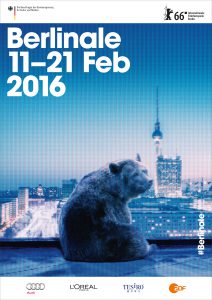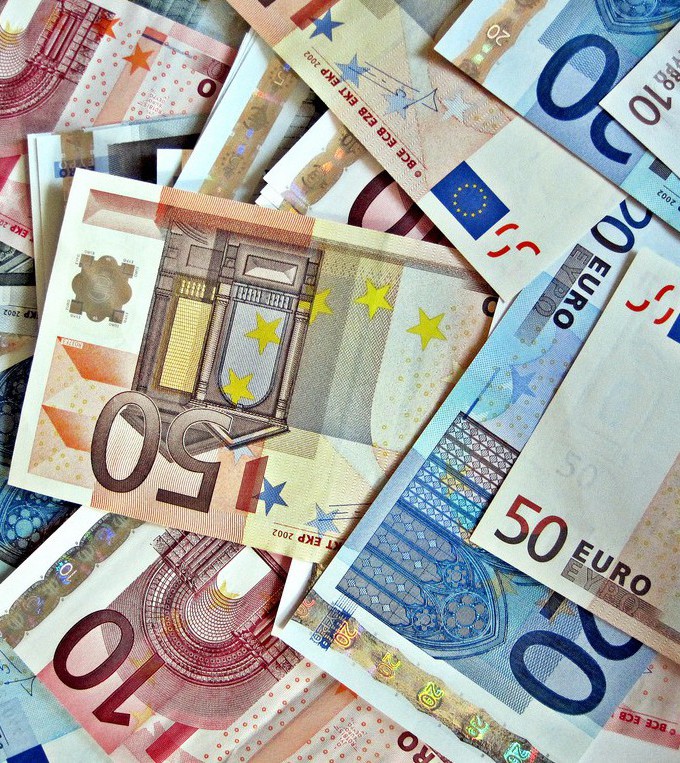The main award ceremony of Berlinale 2016 took place on Saturday, 20 February 2016 — see www.berlinale.de
- 20 February | The Golden Bear went to Fuocoammare (Fire at Sea), a documentary by Gianfranco Rosi about the Italian island of Lampedusa, which has become synonymous with the hardships and the hopes of refugees. The decision of the International Jury was a foreseeable response both to the circumstances and to the politically singular curatorial decision to include this film into the Berlinale’s competition section usually kept for feature films.
- 20 February | The Silver Bears also found their way to well-deserved owners: Death in Sarajevo by Danis Tanović received the Grand Jury Prize; the eight-hours-long Philippines and Singapore coproduction A Lullaby to the Sorrowful Mystery directed by Lav Diaz received the Alfred Bauer Prize for a Feature Film That Opens New Perspectives; Mia Hansen-Løve received the Silver Bear for Best Director for her film L’ avenir (Things to Come); Trine Dyrholm received the Silver Bear for Best Actress for her role in Kollektivet (The Commune) directed by Thomas Vinterberg; the Silver Bear for Best Actor went to the Tunisian actor Majd Mastoura for his role in Inhebbek Hedi by Mohamed Ben Attia; the Pole Tomasz Wasilewski received the Silver Bear for Best Script for United States of Love, which he also directed; and finally the Silver Bear for Outstanding
 Artistic Contribution went to Mark Lee Ping-Bing for his camerawork in the Chinese production Crosscurrent directed by Yang Chao.
Artistic Contribution went to Mark Lee Ping-Bing for his camerawork in the Chinese production Crosscurrent directed by Yang Chao. - 20 February | The Berlinale public has cast its votes and gave the 18th Panorama Audience Awards to two Israeli films: Junction 48 by Udi Aloni for best fiction film and Who’s Gonna Love Me Now? by Tomer and Barak Heymann for best documentary.
- 19 February | The members of the Youth Jury in the Generation 14plus section Crystal Bear Award to Mellow Mud by Renārs Vimba (Latvia, 2016), a film that tells the story of the 17-year-old and her younger brother who are left behind when their mother emigrates to England. The jury’s Special Mention went to Zhaleika by Eliza Petkova (Germany, 2016) that subtly tells the tale of a young woman’s emancipation also portraying the customs and traditions of a village set in rural Bulgaria.
- 19 February | The Independent Teddy Award Jury has spoken! The award in Best Short category was awarded to the animation film Moms on Fire by Joanna Rytel. The winner of the Best Documentary/Essay Film category is Sara Jordenö’s Kiki, a film about the world of today’s young black LGBT community. The Special Jury Prize goes to the Chilean film You’ll Never Be Alone by Alex Anwandter — a story about introverted Juan, manager of a mannequin factory, who lives alone with his eighteen-year-old gay son, Pablo.
See more Berlinale 2016 coverage here.
European art, held hostage by capital
Article by Daniel Tkatch, 10 October 2015
There is a global network of airport-based duty-free depots that buy and sell works of art that might never again see the light of day. Chances are you’re not among their customers. In 1990, Japanese paper magnate and art collector Ryōei Saitō purchased a Van Gogh at a Christie’s auction. He paid 82.5 million US dollars, making “the Portrait of Dr. Gachet” the world’s most expensive painting at that time. Saitō died six years later. In his will, he ordered the portrait to be placed in the coffin along with his body and cremated. Since then, nothing is known about…
Ersatz environmentalism VW-style
Opinion article by Daniel Tkatch, 26 September 2015
My wife and I, we’ve been driving a diesel Volkswagen for years. And we were quite happy with our Golf. Until now. We don’t know for sure whether our car should be counted among the 11 million manipulated vehicles that the German car manufacturer has released into the world. Admittedly, we would even be somewhat reluctant to look for that information, somewhat reluctant to know. What we know is that we couldn’t get a green sticker back in 2008. We lived in Berlin and the city introduced an environmental zone in the centre. Instead, our car got a red sticker…
The challenges of adequate minimum income in Europe
Highlights article by François Denuit, 27 July 2015
“The current approach is leading to a dismantling of agreed social rights, undermining well-developed social models in the European Union, and is pushing people further away from the European project”. This is how the recent report ‘Toward accessible and adequate minimum income schemes in Europe’ of the European Minimum Income Network (EMIN) describes the current state of affairs in the EU, in which the number of people living in poverty and social exclusion has increased by 10 million since 2009. To redress the situation, safeguard and promote the right to an adequate and accessible minimum income as a fundamental right…
20 July 2015
Greek banks reopened Monday after being closed for three weeks. Although capital controls still remain in place and the country’s stock market remains closed, withdrawals of up to €300 in one transaction at the end of the five-day working week rather than just €60 a day are now permitted. This small step towards normalisation took place on the same day that Greece made a €2 billion debt repayment to the IMF, clearing its arrears to the institution, as well as a €4.2 billion payment to the ECB, officials confirm. Tapping into the €7.16 billion bridge loan has given Athens a bit of breathing room but only until the end of July, with further negotiations between Greece and its Eurozone partners scheduled to conclude by mid-August.
13 July 2015
Eurozone leaders have finally reached a unanimous agreement over a third bailout for Greece after almost 17 hours of negotiations. It includes the creation of a new Athens-based fund of up to €50 billion which will privatise and manage Greek assets and contribute to the recapitalisation of Greek banks, “bridge financing” to avoid a collapse of the Greek banking system and to repay €7 billion to the ECB before money from the third bailout is handed over, debt restructuring, and radical reforms in Greece. “The measures are recessionary,” said Tsipras, “but we hope that putting ‘Grexit’ to bed means inward investment can begin to flow, negating them.” Several eurozone national parliaments, including Greece’s, must approve the third bailout for its formal commencement to take place.
29 June 2015
European stock markets took a hard hit after Greece announced it would close its banks, implement capital controls and hold a referendum scheduled for Sunday, 5 July. Uncertainty and fear have made a dent in the stock markets causing losses of over 4%. The Spanish and Italian stock exchanges are those which have suffered the most, experiencing a loss of 5.16% and 5.17%, respectively. Despite the bleak scenario Europe is facing, the Commission and the member states have made it clear that they will not succumb to the pressure.


